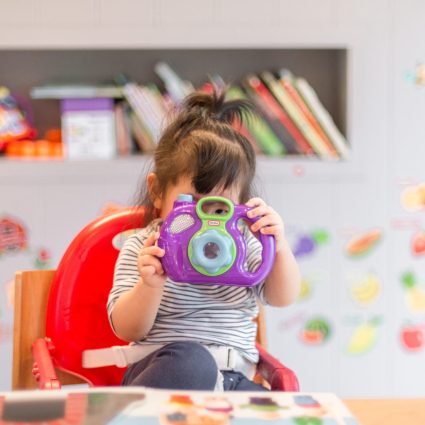Infants (6 weeks to 10 months)
Individual Care
All infants have individual schedules, and our teachers work directly with families to develop feeding and sleeping schedules suited to your child’s individual needs. We strive to create a continuity of care between home and school by building relationships with each family and baby.
Daily Activities
After feeding, sleeping, and diapering needs are met, our infant curriculum supports baby’s curiosity of the world around them. We engage in tummy time, sensory exploration, story-time, music, and developing one on one connections with each child. We support language development and social engagement using Baby Sign and telegraphic speech.
Older Infants (9 to 15 months)
Exploration
Big “firsts” happen in quick succession at this stage of an infant’s life, which is why Dandelion designated a classroom for these foundational months. As a little one begins to move to explore, activities are designed to encourage movement and curiosity.
Daily Schedule
Our older infants begin to have a group schedule; including outdoor and playroom times, group meals, and a curriculum catered to support a baby’s innate curiosity to explore their immediate environment.
Environment
DNPS builds an environment for our babies to safely explore the room and bring back what they’ve learned to those who love them. We provide ways ways to crawl and pull themselves up, materials with different shapes and textures to grasp, and a rotation of activities. Our infant classrooms and curriculum are designed to spur babies intrinsic desire to understand their world.
Younger Toddlers (15 – 28 months)
Socialization Through Imitation
Sometime between 14 and 18 months, a little one develops a sense of themselves. They begin to understand that their wants and intentions can be different from others. This begins a new stage of social interaction as Toddlers begin to engage and discover how to include others in their play.
Curiosity
Toddlers are scientists. They have an intrinsic desire to problem solve and are constantly exploring. With this comes a curiosity and drive to seek out new experiences while also repeating familiar events in order to master skills. DNPS fosters that natural curiosity by helping them maximize the potential of everyday occurrences as well as creating new learning experiences to encourage their development through play.
Little Helpers
Practicing self help skills builds confidence and courage to try new things. In the toddler rooms, we work to use utensils, sit in a chair, clean up, wash hands, and become helpers within our classroom and school.
Older Toddlers (24 months – 3.5 years)
Confidence in Routine
Two year olds are still toddlers working towards mastering their environment. In the two’s classroom, a daily routine helps them learn sequencing and gain confidence in knowing what comes next and feel capable to master daily tasks.
Foundational Skills
Coordination, balance, strength in little fingers, turn-taking, the ability to name emotions, and the language to play with friends are all necessary skills prior to academic goals. Through activities and play, our 2 year old’s gain what is needed to become active participants in their own education.
Imaginative Play
As a two year old becomes aware of their internal thoughts, they use play for symbolic commentary on their experiences, as well as a means to represent and emotionally discharge reactions to stressful situations. Play provides a more complex representation of experience than they are able to express in words.
Preschool (3 to 5 years)
Environment
We provide a beautiful, open, engaging, child-centered environment in which children are supported and nurtured. Within which, a variety of moments occur and provide children with opportunities to develop communication, social, emotional, cognitive, and motor skills. These skills are seen as essential for the development of young children.
Building Foundations
The goal in this classroom is to provide opportunities for building foundational skills needed for both learning and life. The room is designed to actively engage each child in activities exploring the content areas of literacy, social, emotional, mathematics, science, movement, and arts.
Community
DNPS’s preschool classroom is a mixed age group of 3-5 year olds. This allows a wide range of skills and abilities to work together to build a classroom community. The younger children are able to learn by watching and modeling behavior. Our older children flourish when given the responsibility of being the teacher’s helper by helping teaching or helping the younger children. Their autonomy grows as they start to see opportunities to help others.

